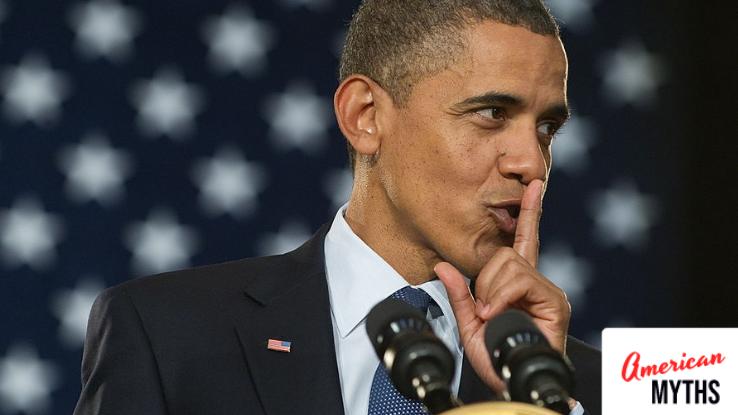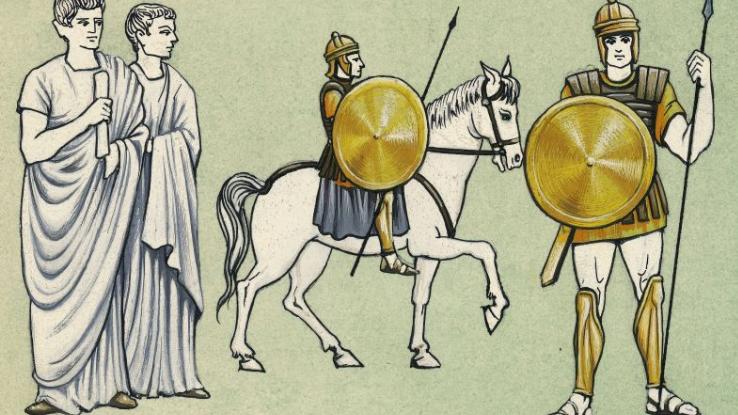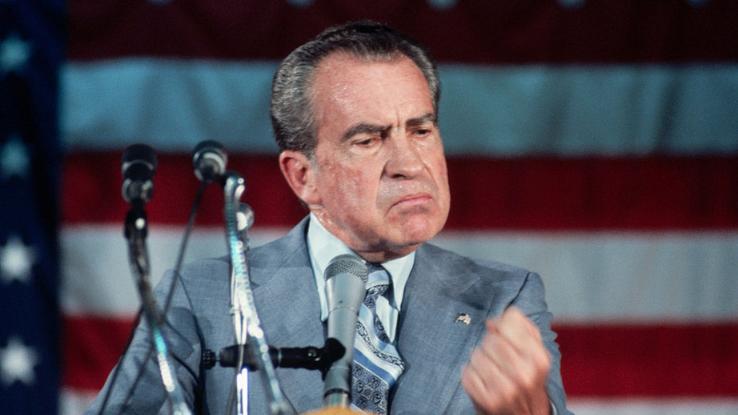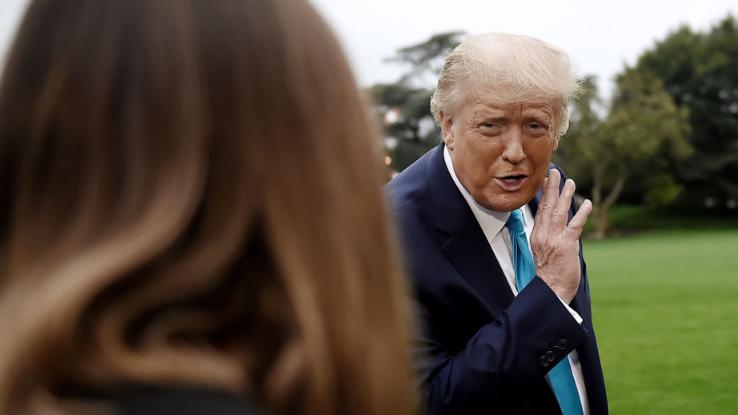Easy Way to Play Silent Night on a Clairinet

Silent majority — it's a term that's been used more frequently in the past five years than it has in the last few decades. Dozens of groups and accounts on social media now incorporate "silent majority" into their names and bios. Many of them have massive followings and active users, while others have their privacy settings adjusted to keep people out. This can make them appear silent in a sense, even though online anonymity can be a thin veil. Still, being a part of a silent majority has become an identity for some folks.
When people invoke a term like "silent majority," it's often related to politics and a large group of voters who don't express their political stances openly. Much like an October Surprise, a silent majority can affect the results of elections at local and national levels. The most notable recent invocation of a silent majority involved Donald Trump, who first used the term in 2015 and continued to do so during campaigns for the 2016 and 2020 elections.
"Silent majority" doesn't begin and end with Trump or social media, though. Looking beyond Trump, "silent majority" has become a popular campaign slogan among a slew of candidates. But seeing it start to appear so frequently in news cycles can raise even more questions than it answers about candidates, constituents and the real meaning of the term. As it turns out, "silent majority" has a surprisingly non-political origin you won't find in history textbooks — and it hasn't always meant the same thing.
Editor's Note: This article is a part of our ongoing American Myths series in which we explore the truths behind misrepresented people and events throughout history.
Tracing the SIlent Majority Back to Roman Roots

The first known reference to a group of people as a silent majority had nothing to do with elections at all. The Roman writer Petronius, author of texts like the Satyricon, was the first to use the phrase. When he used the term that would translate to "silent majority," Petronius was referring to the dead. Petronius lived during the time of Emperor Nero, making the phrase nearly 2,000 years old.
It makes sense to think of the dead as silent — they're no longer around to communicate — but the type of silence Petronius referred to had more to do with leaving a legacy. In his time, the ability to read and write were skills that not many people had access to. If someone passed away, they became silent forever because they were unable to leave any records like diaries behind. Since the dead outnumber the living, Petronius saw them as a majority population, but one unable to voice their views.
For centuries "silent majority" was used to reference the dead, even at high levels of the U.S. government. John Marshall Harlan, a Supreme Court justice in the late 1800s, used the term when referring to those who died during the Civil War. Was this the way "silent majority" made its way into the American headspace? Not quite.
Before Justice Harlan, "silent majority" was already in use in the political landscape. A Representative of New York named Churchill C. Cambreleng used the term when speaking to a political group in 1831. During his speech, Cambreleng referred to majorities stepping on the rights of minorities.
That doesn't seem far off from a speech you'd hear today, but Cambreleng's use of the phrase needs some context. Non-landowners didn't vote in any presidential elections until 1828. Black Americans didn't gain the right to vote until 1870 (and ultimately 1965). Women couldn't vote until 1920. Groups of voters weren't sorted into boxes based on voting issues or on their identities as much as they are today. Describing groups of voters was a newer practice during Cambreleng's time. He was most likely weaving words together for his speech, not looking to create a political movement or galvanize one group against another.

When Calvin Coolidge ran for President in 1919, the ad executive behind his campaign, Bruce Barton, employed "silent majority" to characterize this would-be president. Coolidge didn't clinch the nomination for the Republican Party, but he did serve as Vice President under Warren G. Harding until Harding's passing in 1923. Future Republicans would eventually take a cue from Coolidge, but "silent majority" isn't exclusive to any particular political party.
The next and perhaps most significant invocation of "silent majority" starts with John F. Kennedy and the Vietnam War. Kennedy had written in his book, Profiles in Courage — a compilation of politician biographies — "Some of them may have been representing the actual sentiments of the silent majority of their constituents in opposition to the screams of a vocal minority." Kennedy personally signed and sent a copy to Richard Nixon.
Nixon's use of the term may be one of the most famous in history, and it also had little to do with voting. Nixon's famous "Silent Majority" speech referred to the Vietnam War, specifically to his plan to end the war. The U.S. had been involved in this conflict for a decade, and many voters were ready for the war to end by the time Nixon took office. Nixon's plan was to pull out gradually as opposed to sending all the troops home at once.
In his speech, he alluded to a protest sign that read "Lose in Vietnam, send our boys home" with disgust. Nixon claimed that people expressing this sentiment were a vocal minority, and the silent majority supported the U.S., its troops and all of their actions: "If a vocal minority, however fervent its cause, prevails over reason and the will of the majority, this Nation has no future as a free society."
After this, politicians, journalists and civilians all over the world began using "silent majority" much more often. In the U.S., the phrase was associated with the Nixonian connotation: People who are protesting against the (usually conservative) government are "them," and "everyone else" is in the silent majority. But because Nixon didn't have any proof backing his claim, this idea about the silent majority is a mythologized one that may or may not have been true.
Despite this, the phrase and the mentality associated with it gave numerous conservative politicians, like Ronald Reagan, talking points and helped constituents shape their voting identity around the phrase. Eventually, Donald Trump "brought the idea of the silent majority to the forefront" once more while campaigning, and NPR reported that attendees of Trump's rallies believed "the silent majority is defined by fiscal conservatism, or disapproval of things like Planned Parenthood, or anger with government gridlock."
Bottom Line: There's No Single Silent Majority

So, did Nixon create the silent majority? Is the silent majority a Republican talking point, or is it a serious group of voters? Maybe if the silent majority was exclusively American this would be easier to define, but "silent majority" has been used all over the world, and it's mainly a rhetorical tool. There is no single — or real — silent majority.
In 2019, Scott Morrison used the term to thank his "quiet" voters after becoming the Prime Minister of Australia. Morrison is a member of Australia's Liberal Party, so the idea that the silent majority are quiet and conservative can be limiting. "Silent majority" has also been used by political figures from Italy, Portugal, Hong Kong, the U.K. and other nations. The term is less of an official movement or identity and more a constructed mass that helps describe a group of people that may or may not be real.
These days, it's more difficult to find a group of people who are actually silent. People have the unprecedented ability to voice their opinions and fight for progress. Literacy rates are much higher than they have been in past centuries, so diaries and other writings can help preserve individual stories. Preservation efforts have been helping traditionally underrepresented groups throughout history. But ultimately, the original meaning of the phrase makes an important point: The dead can't speak. In line with Petronius, a true silent majority lacks a voice.
If a group chooses to speak out, it's not to cause trouble or be "unAmerican" like Nixon may have implied. Typically, if a group needs to be louder than anyone else, it's because they don't have the same rights as those who are remaining silent. Or, their rights might be in danger. There's nothing wrong with speaking out peacefully to protect your own rights or to be an ally for another group. For some, silence equals violence.
Nixon's usage of "silent majority" implies that most Americans don't like discussing politics — or that the ones who do are somehow acting out of turn or without reason. Politics can be a subject that's taboo, but not talking about certain problems can impede their solutions. The Constitution supports political discourse whether you're in the Capitol Building or at a dinner table. It's okay to be a part of a majority or a minority, but there's often no need to be completely silent about your beliefs.
petersonthetooday.blogspot.com
Source: https://www.reference.com/history/who-is-the-silent-majority?utm_content=params%3Ao%3D740005%26ad%3DdirN%26qo%3DserpIndex&ueid=4e7ec92b-7897-449b-9b9f-5fbf135504a7
0 Response to "Easy Way to Play Silent Night on a Clairinet"
Post a Comment